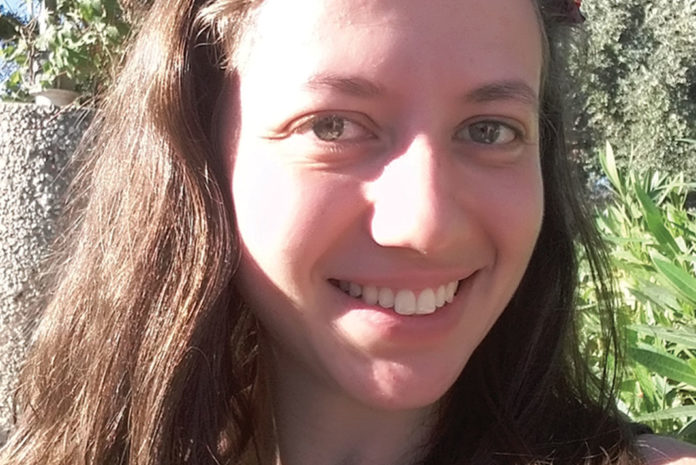Being a trail-blazer is not always easy. There is no precedent from which to learn; no guiding voice from someone who ‘has been there’; and you have community eyes watching your every move.
Anyone who knows Sofia Zway understands that the challenge is precisely what drives her. In July Sofia will embark on her journey to become a rabbi — the first woman from Temple Israel to do this. For a community like ours, the concept of a ‘woman rabbi’ still seems oddly uncomfortable. Although Sofia is not afraid to ‘ruffle some feathers’, her motivation is primarily about building and not blaming.
“The best way I can contribute to this community is as a rabbi. It will allow me to immerse myself in the elements I love most about Judaism — ritual and community,” Sofia explains.
A role-model and hero of Sofia is Regina Jonas — the first woman rabbi, ordained in 1935, who faced enormous resistance to her becoming a rabbi. In her final thesis before getting her rabbinic ordination, Jonas concludes: “Almost nothing halachically but prejudice and lack of familiarity stand against women holding rabbinic office.”
These words, written over 80 years ago still sadly ring true in South Africa.
Sofia has a very gentle, but determined vision for contributing to community: “I think it is important that girls see women on the bimah and know that becoming a rabbi is a real possibility.” Sofia proudly dons a colourful kippah — not to offend, or foment controversy, but rather to demonstrate her commitment to her faith, to her people and to her community.
“The rabbi that stands on the bimah teaching comes from a specific lived experience. How can we truly represent communities when we only represent the lived experience of half of the community? My intention is to build community and build connections. Not just between people but between people and God.”
Without knowing it, Sofia beautifully echoes the sentiments of Regina Jonas herself. On 6 November 1942, Jonas and her mother were deported to Theresienstadt, where she continued to serve as a rabbi. On 12 October 1944, they were both deported to Auschwitz and probably killed the same day. In the archives of Terezín there remains a handwritten document that summarises her religious worldview and her legacy.
“If I confess what motivated me, a woman, to become a rabbi, two things come to mind. My belief in God’s calling and my love of humans. God planted in our heart skills and a vocation without asking about gender.”
Sofia Zway — the community of Cape Town salutes your courage, your passion and your integrity. May your example serve as a light to the many who will surely follow in your footsteps.











